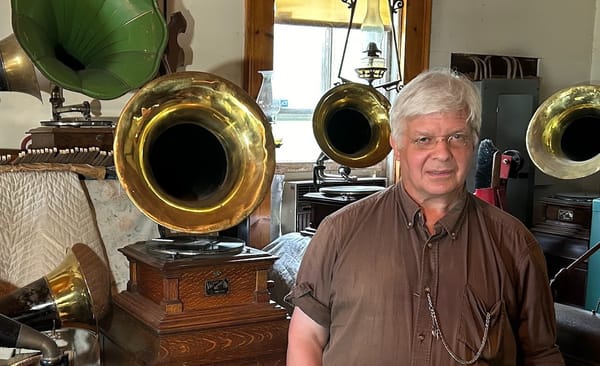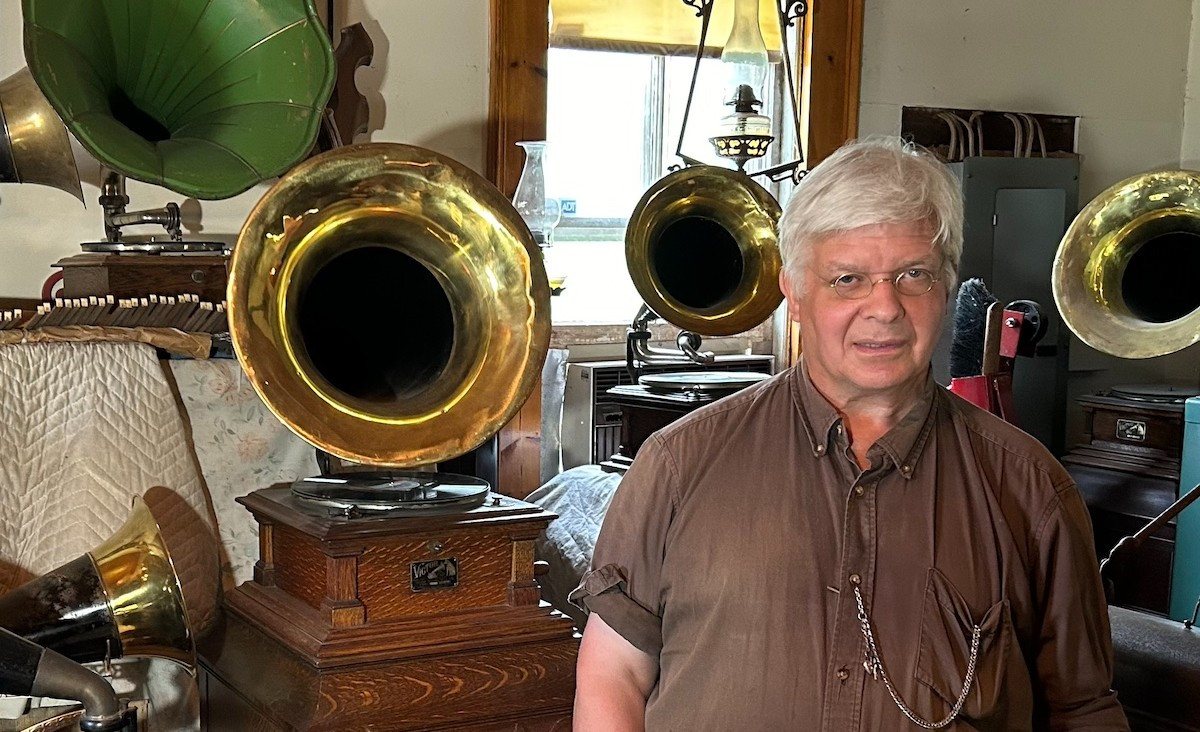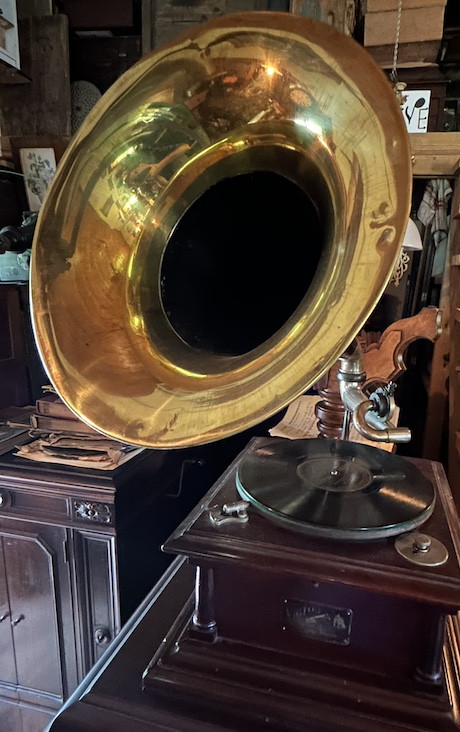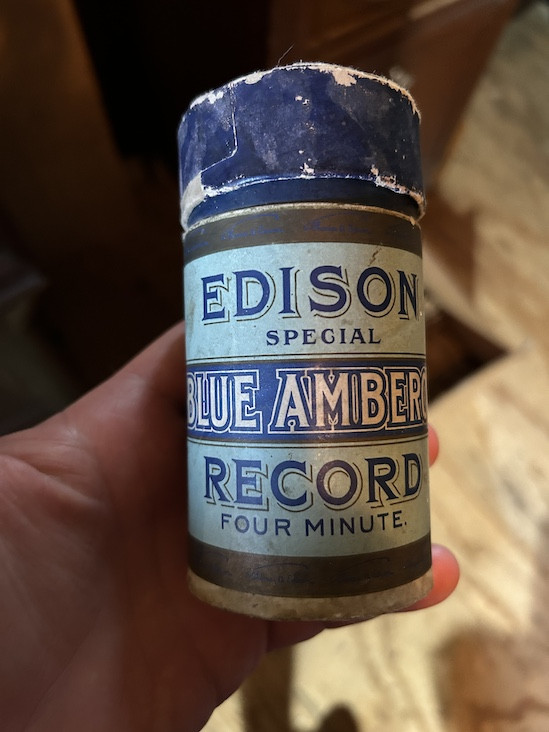The Rural We: Wallace Stock
The Columbia County resident will share his knowledge of vintage phonographs and records at the Malden Bridge Community Center.

The Columbia County resident will share his knowledge of vintage phonographs and records at the Malden Bridge Community Center.

Pianist and piano technician Wallace (“Wally”) Stock restores all types of pianos, but his avocational passions are vintage music and phonographs, and sharing his knowledge of the historical impact of the invention of the photograph. On August 24 at 2 p.m.at the Community Center in Malden Bridge, New York, Stock will begin a series of talks, “From the Record,” about the earliest days of phonograph recordings, playing examples that include the voices of Thomas Edison and Teddy Roosevelt as well as songs, recitations and comedy. Admission is free, but donations will be appreciated, as this is a fundraiser for the community center.
My background is musically oriented. I play piano, and in the past played professionally at places like the Red Lion Inn, the Bavarian Chalet, and The Egg. I played some classical, some salon pieces, and soft background music. Sometimes I would play and sing. A lot of my repertoire is from the recordings I have, or old sheet music — it’s more melodic and tuneful. I’m semi retired now but I still run a piano business.
As my interest in phonographs and phonograph records grew, I acquired more machines and more records, and it became quite an interesting hobby. Through these records, you can hear Teddy Roosevelt and Thomas Edison speaking. Instead of reading what these people said in a history book, you can hear what they said through this equipment. It takes history and brings it to life.
At the first talk, I will be playing on the original Edison equipment and records, starting with the earliest recordings and working up to the mid 19-teens. These were acoustic recordings, made and played back without using any electricity. They were not mass produced; each tune had to be sung over and over until they made enough to sell. They started to mass produce them around 1901. The Albany Phonographic Record Company came out with the first unbreakable records. I will bring the audience through time to around the time of the first World War. I’ll be playing recordings of speech and music that were popular in that period.
I’ll also have Edison, Victor, and Columbia [recording studios] memorabilia on display. It shows that the idea of the phonograph was so novel, people made greeting cards with the phonograph theme. No one had ever heard a machine that could reproduce the human voice or music.


